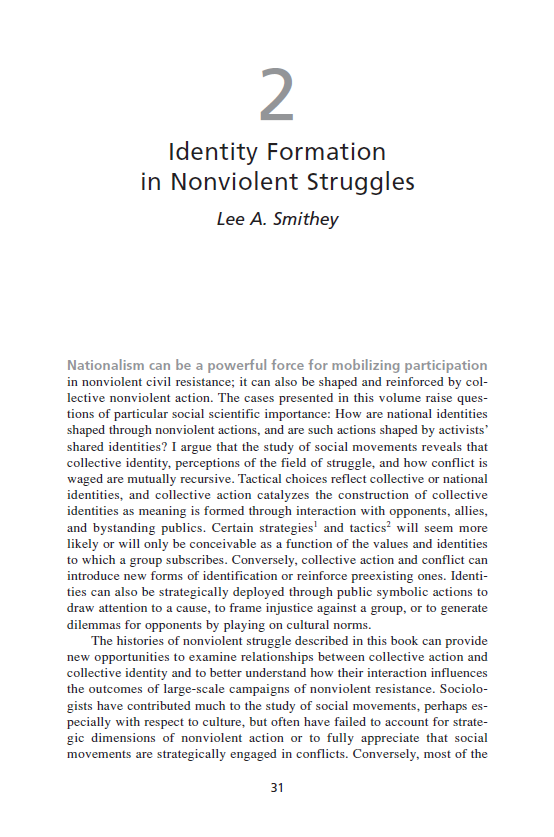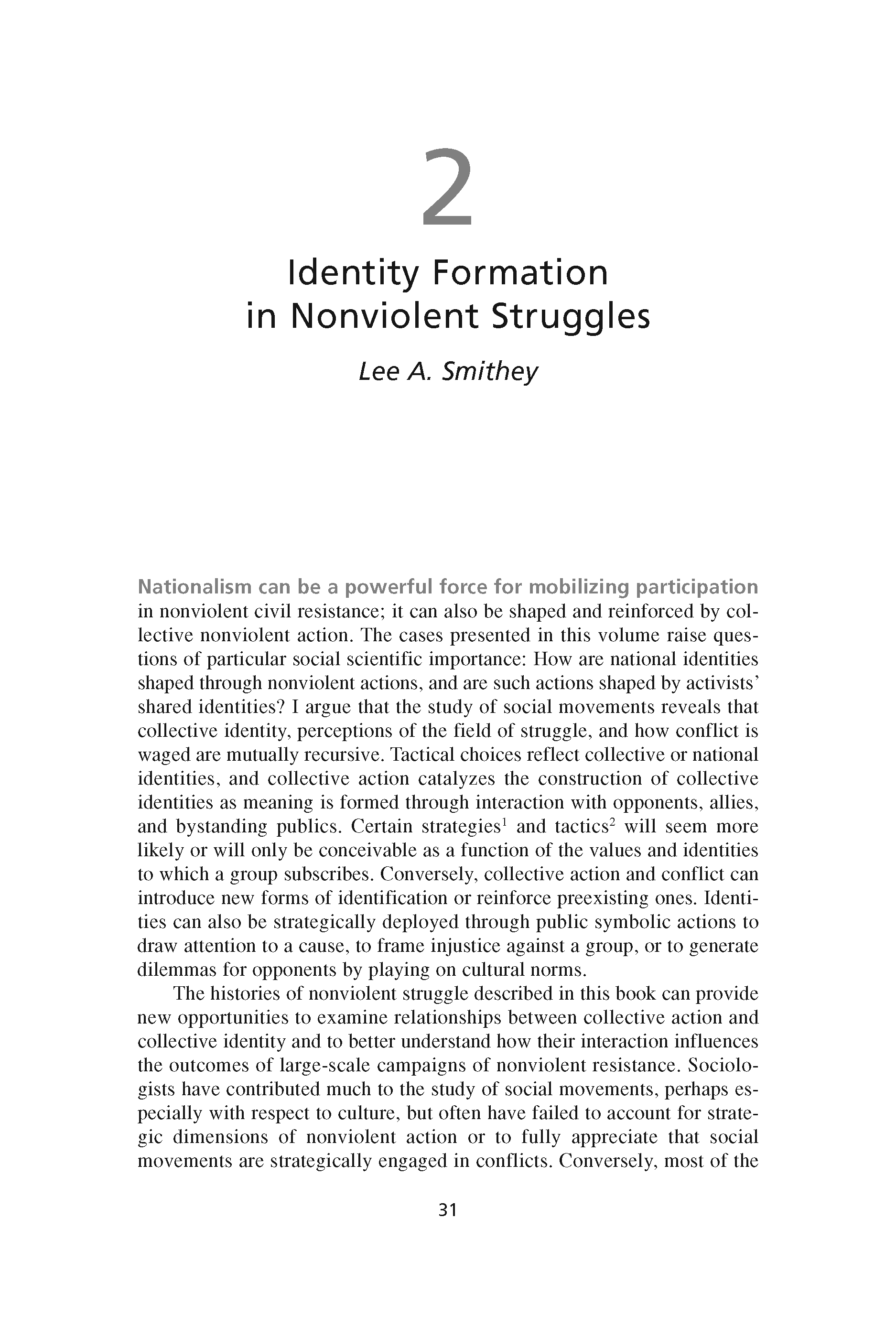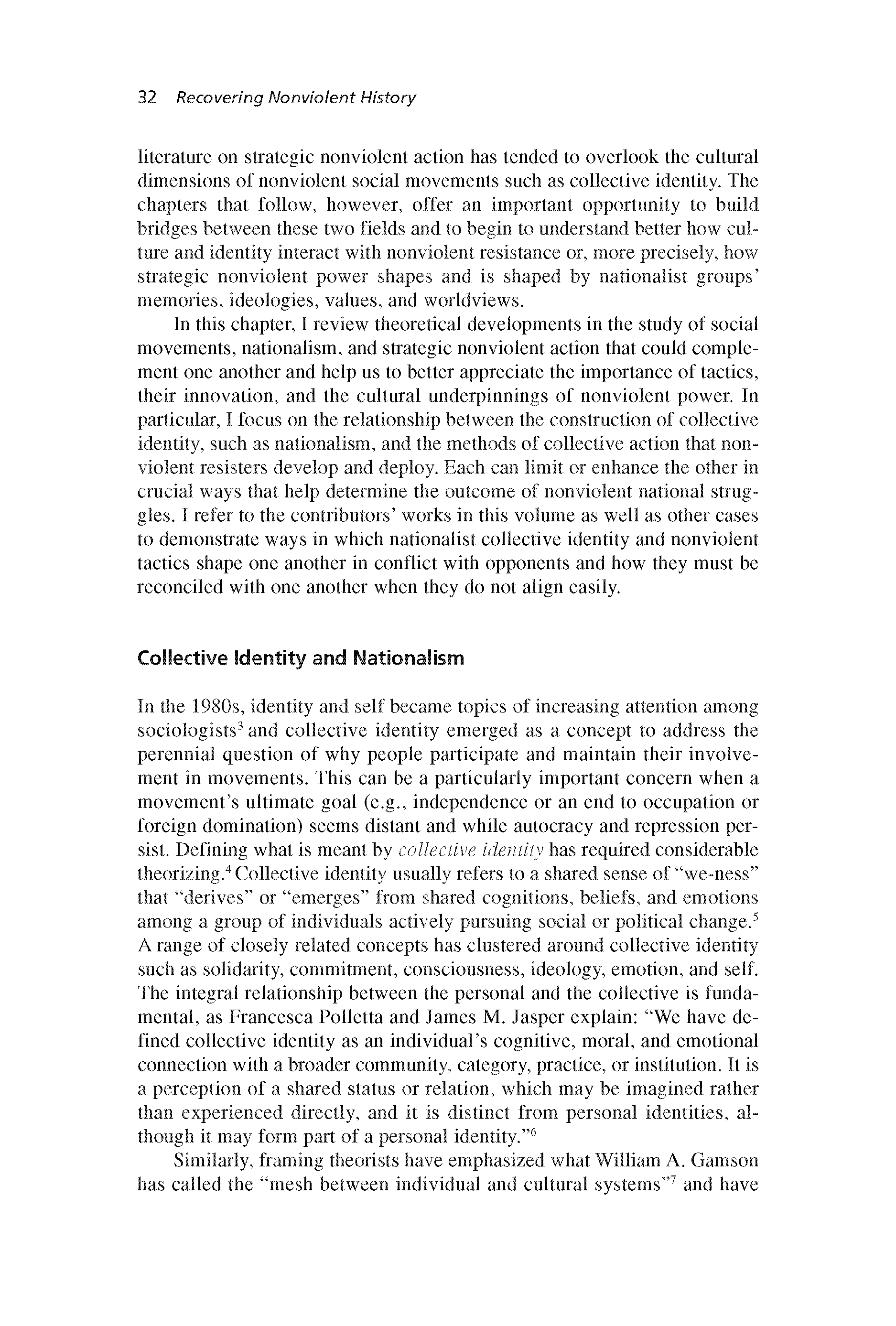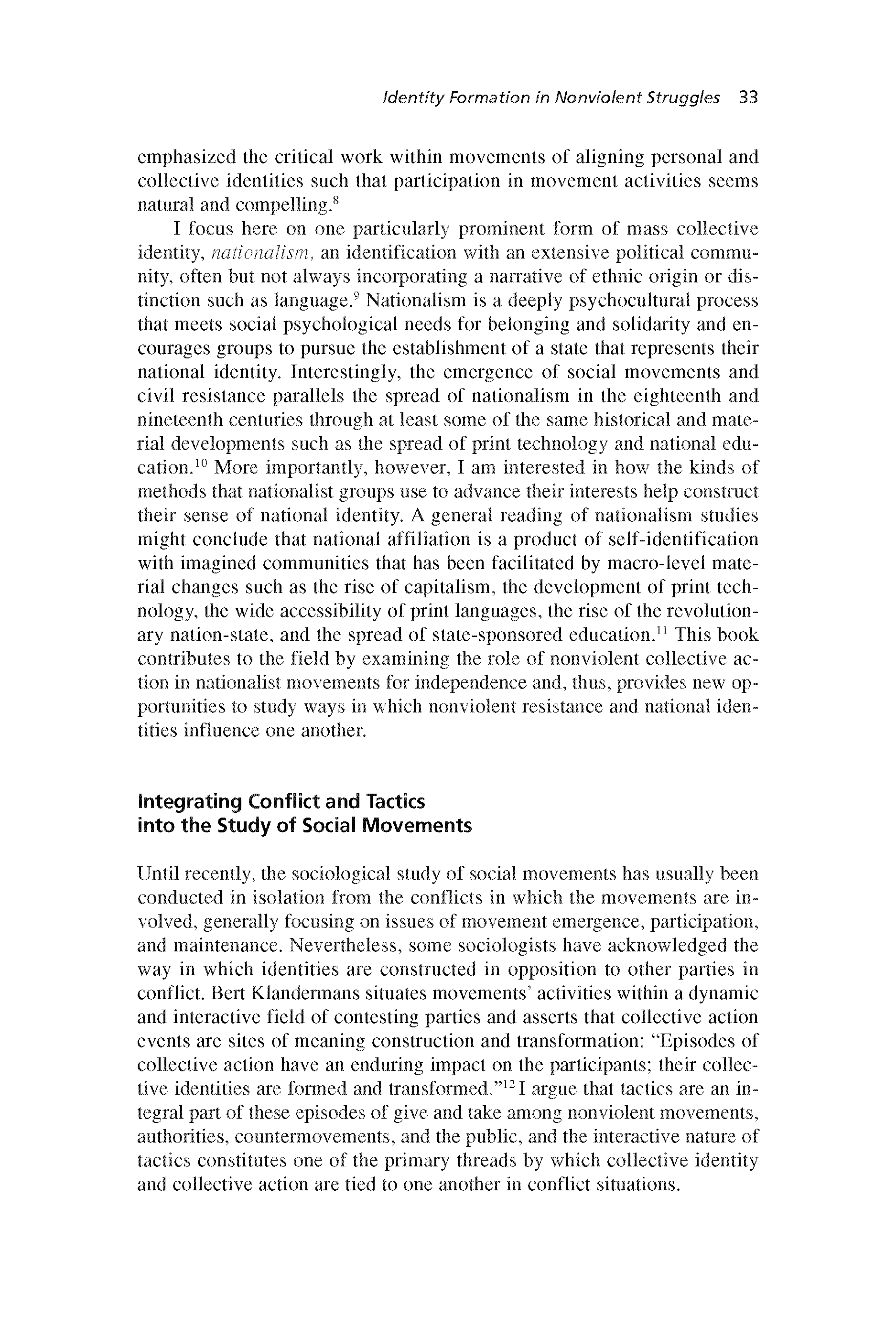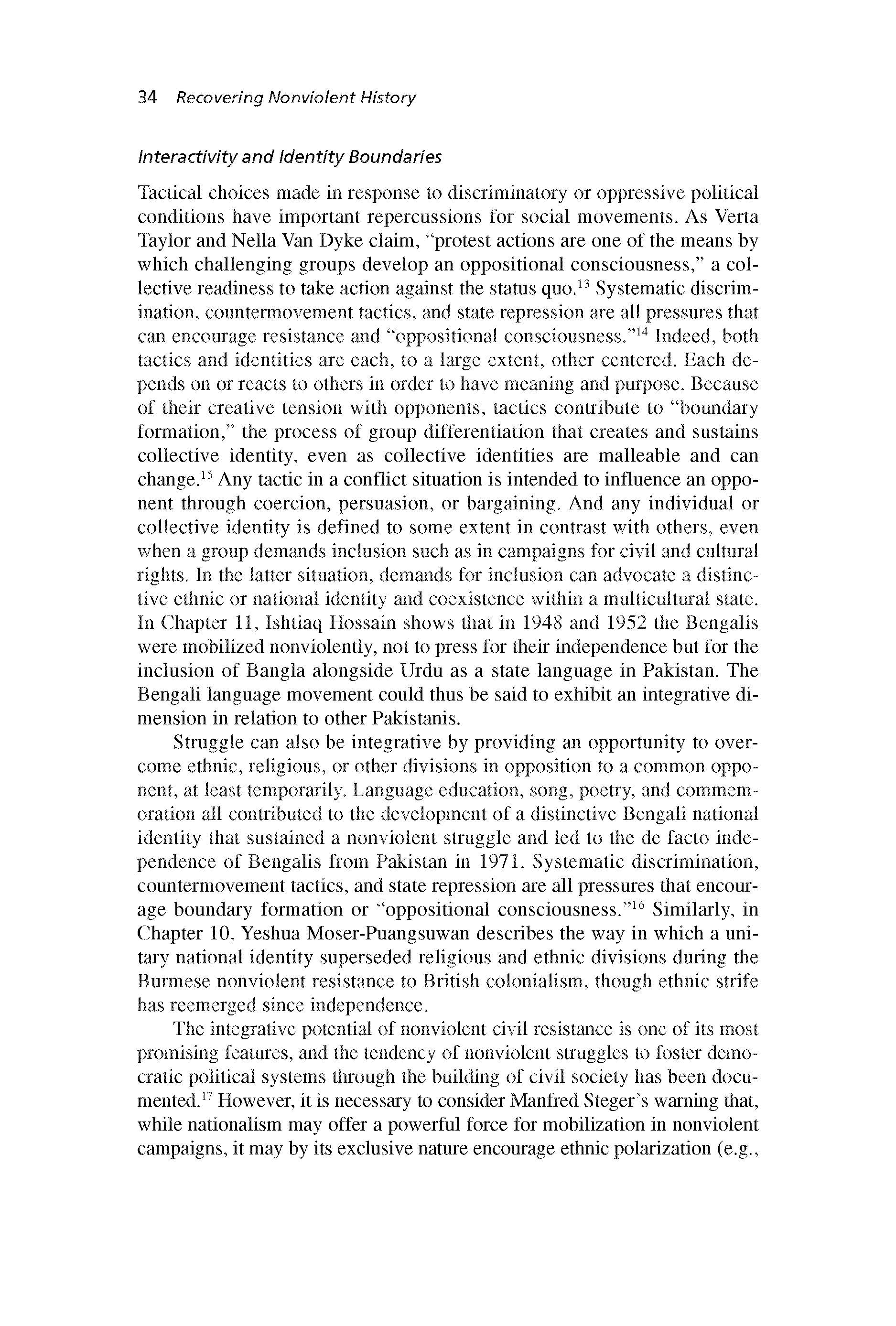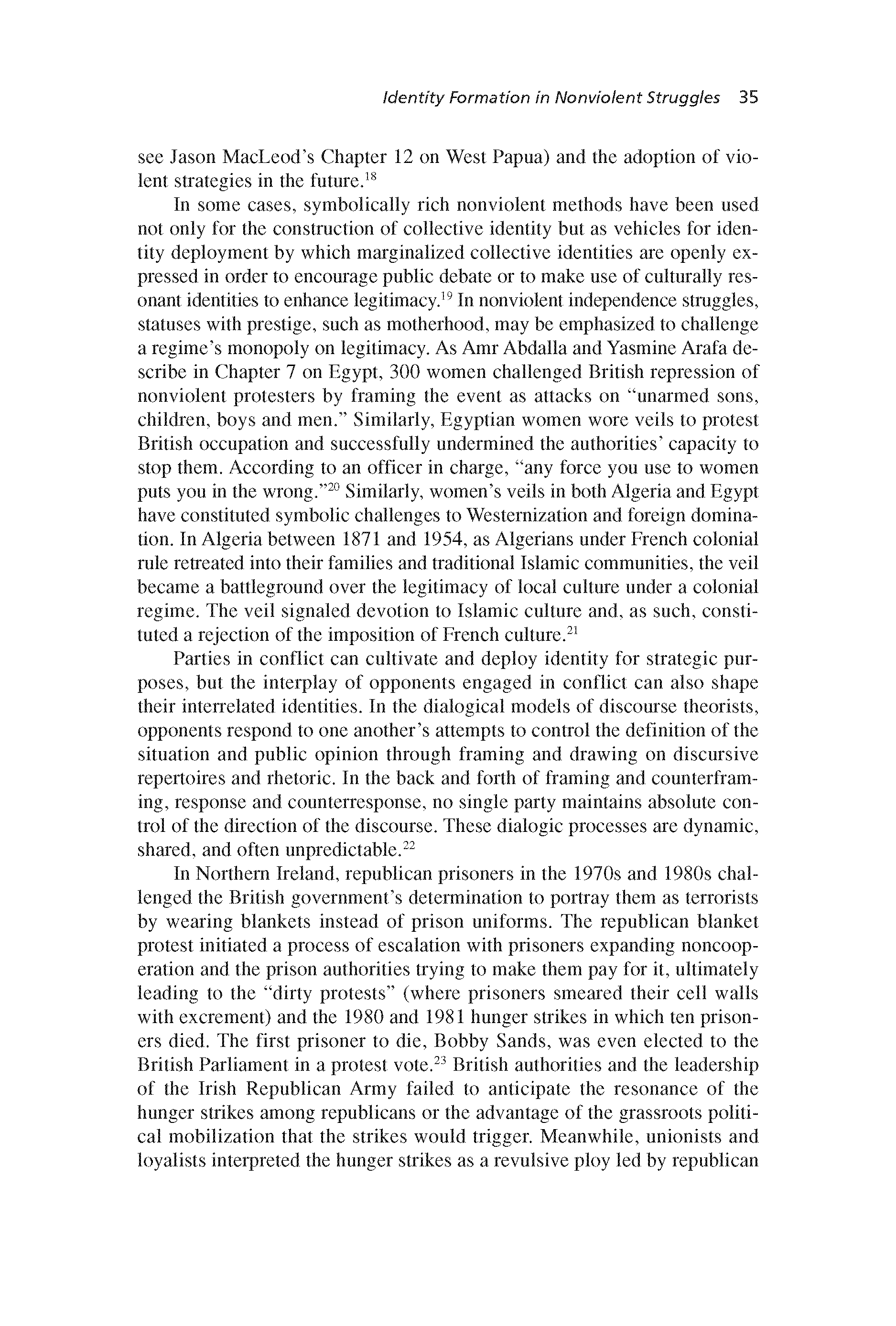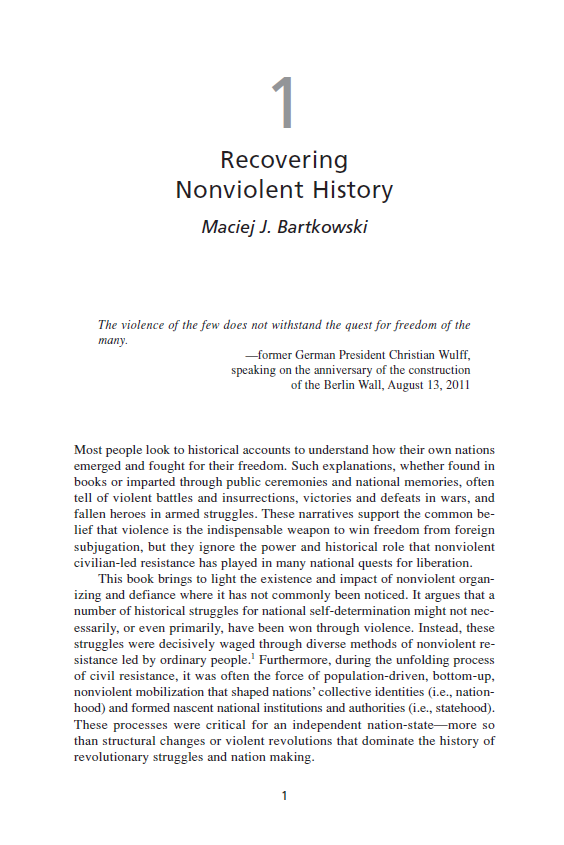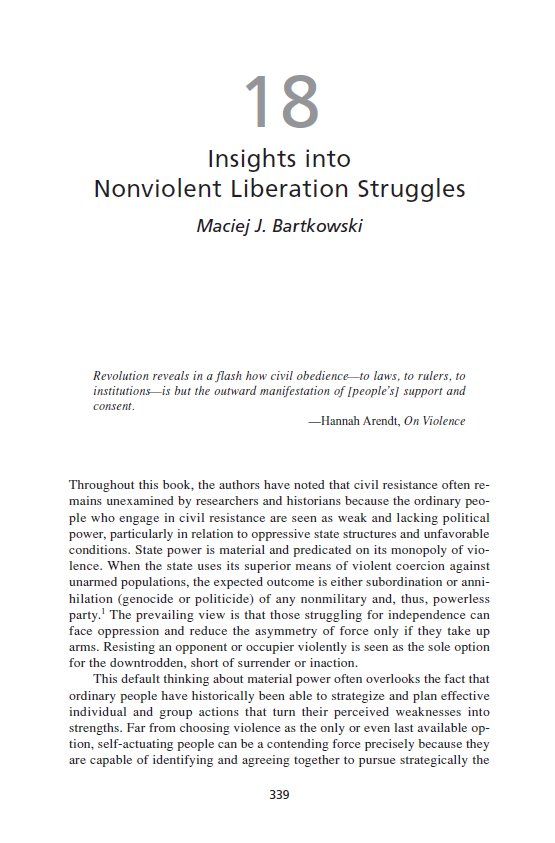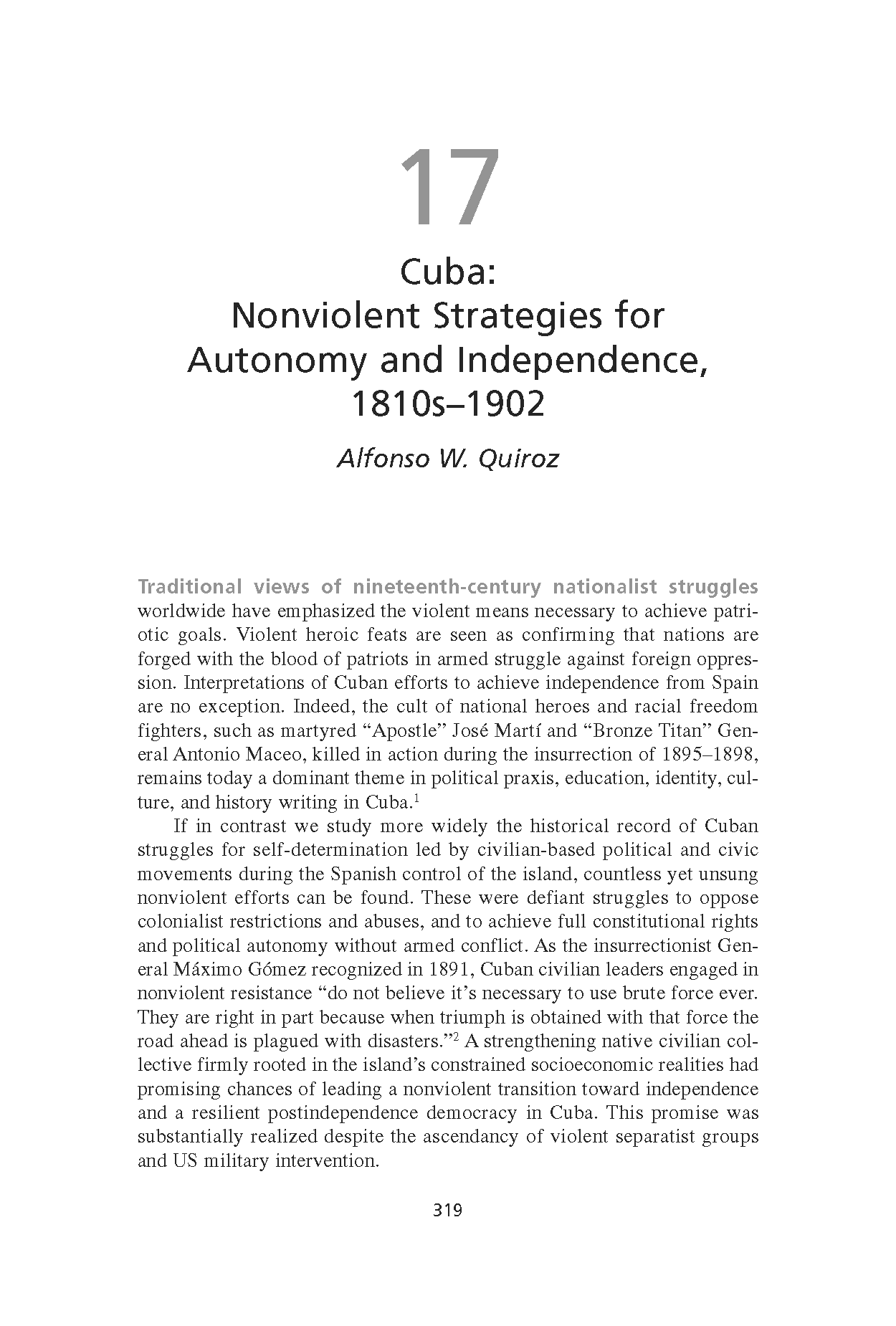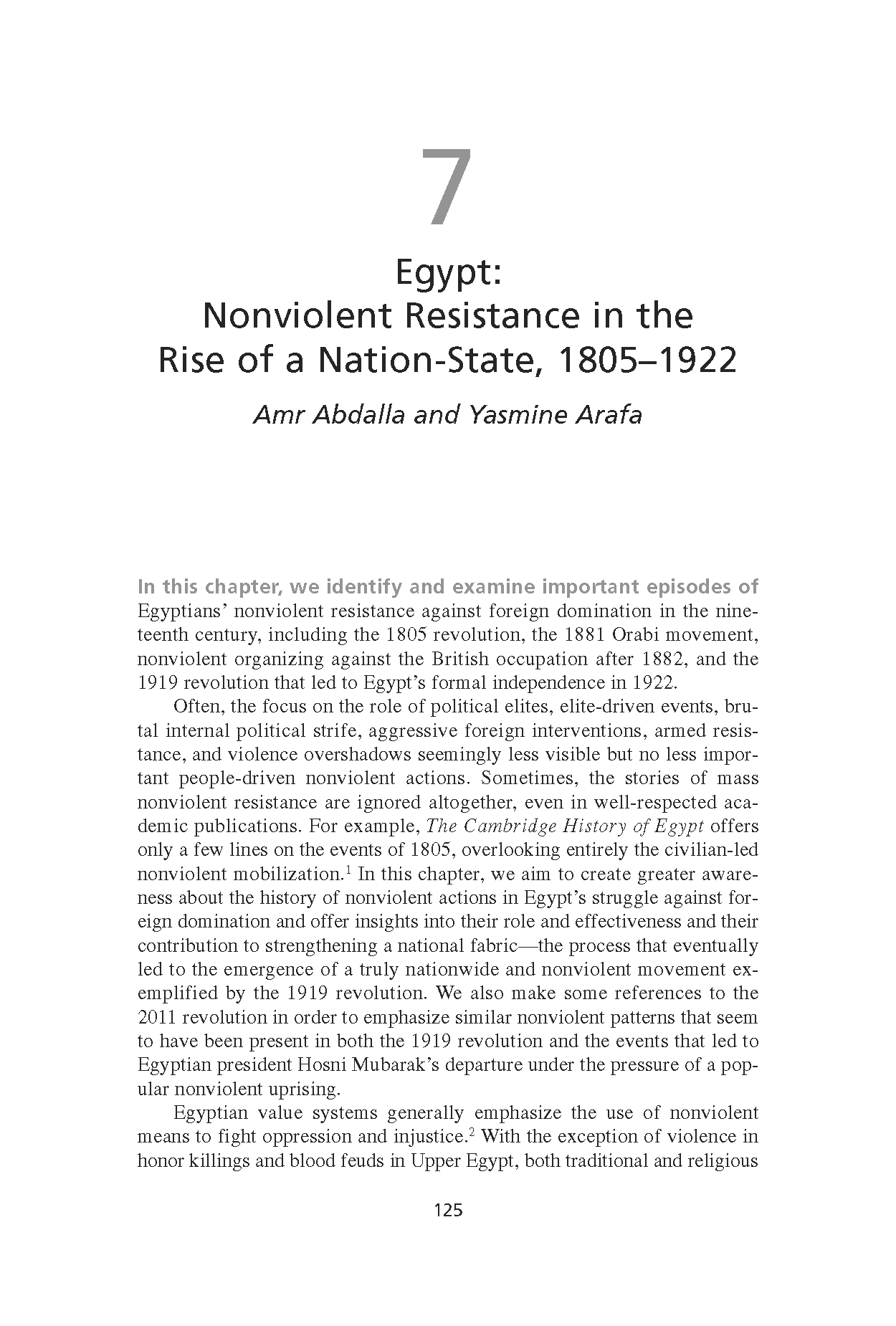Identity Formation in Nonviolent Struggles (Chapter 2 from ‘Recovering Nonviolent History’)
Nationalism can be a powerful force for mobilizing participation
in nonviolent civil resistance; it can also be shaped and reinforced by collective nonviolent action. The cases presented in this volume raise questions of particular social scientific importance: How are national identities shaped through nonviolent actions, and are such actions shaped by activists’ shared identities? I argue that the study of social movements reveals that collective identity, perceptions of the field of struggle, and how conflict is waged are mutually recursive. Tactical choices reflect collective or national identities, and collective action catalyzes the construction of collective identities as meaning is formed through interaction with opponents, allies, and bystanding publics […]
From the book ‘Recovering Nonviolent History: Civil Resistance in Liberation Struggles‘, 2013
